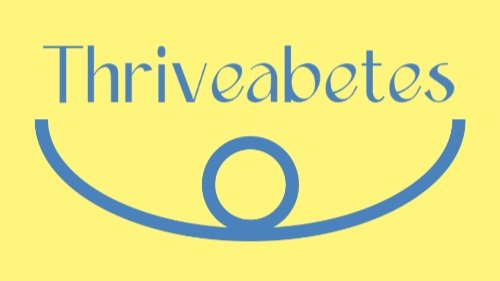It’s a new year! 2016 has well and truly started and I’m very much trying to catch up with it. I’m trying to write this with my children playing in the background and it’s very distracting but not worth it to say anything to break the happy spell they’re under:-D I can’t move onto 2016 without reflecting on how amazing 2015 was and all that was achieved in the diabetes community. I know that we have a lot more to do and we will.
In October 2015, after 18 months of planning, we had one of the most empowering type 1 diabetes conferences in Ireland; Thriveabetes. Rebecca was in one room at Thriveabetes with almost 100 other parents of children with type 1 and myself & Christine were in another room with as many adults with type 1 diabetes. Most of whom we had never met before, maybe some we met online but we all felt like we had known each other forever.
The conference was so successful that we created our own website, so that we could keep that momentum of inspiration, motivation and information for people with type 1 diabetes going and stay connected to you all.
With December 2015 came the publication of the HSE’s Model of Care Document for Children & Teens with type 1 diabetes. The second step in getting better diabetes services for our children with type 1 diabetes. In July 2012 we had the publication of this document for children aged 6 and under with type 1 diabetes.
We now need the HSE to act on this document; to take all of the suggestions in the MofC and develop the program, then implement it. Our job, as people with diabetes is to keep reminding them. We might also suggest to our clinics that they don’t have to wait for a national programme and implement changes now?
2016, what's going on?
- Well, Thriveabetes 2016 is aimed for October. Myself & Rebecca have a list of potential venues that might be suitable for the conference and will be viewing and deciding shortly. Watch this space.
 - In February 2016, Diabetes Ireland will launch their Type 1 Diabetes GP & Public Awareness Project. The aim of this project is to encourage GPs to consider Type 1 diabetes as a potential diagnosis when a child presents feeling generally unwell and secondly to raise awareness among the general parents of Type 1 diabetes signs and symptoms. We don't know how many children or adults die in Ireland because of undiagnosed Type 1 Diabetes or from DKA but we can be sure that it does happen here, just like it happens all over the world. Diabetes UK's "4T's" campaign has been very sucessful there and I think it's a good idea to have this initiative here in Ireland.
- In February 2016, Diabetes Ireland will launch their Type 1 Diabetes GP & Public Awareness Project. The aim of this project is to encourage GPs to consider Type 1 diabetes as a potential diagnosis when a child presents feeling generally unwell and secondly to raise awareness among the general parents of Type 1 diabetes signs and symptoms. We don't know how many children or adults die in Ireland because of undiagnosed Type 1 Diabetes or from DKA but we can be sure that it does happen here, just like it happens all over the world. Diabetes UK's "4T's" campaign has been very sucessful there and I think it's a good idea to have this initiative here in Ireland.
- The publication of the Model of Care for Adults with type 1 and type 2 diabetes is due to be launched by June.
- At Thriveabetes, Dr. Kevin Moore talked about Tallaght Hospital’s initiative bring people with diabetes into the planning and consultation process of improving diabetes services. We hope that more of this happens, more communication between people with t1 and health care providers.
- We also see the Irish type 1 diabetes online community growing, strengthening and empowering all of us.
Here’s to an empowering 2016!
We would love to hear from you and we can contacted any time at Grainne@thriveabetes.ie or through our facebook page; https://www.facebook.com/Thriveabetes/



